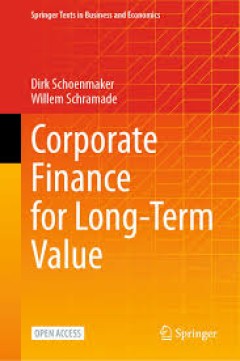Filter by

Achieving the Paris Climate Agreement Goals : Global and Regional 100% Renewa…
This open access book presents detailed pathways to achieve 100% renewable energy by 2050, globally and across ten geographical regions. Based on state-of-the-art scenario modelling, it provides the vital missing link between renewable energy targets and the measures needed to achieve them. Bringing together the latest research in climate science, renewable energy technology, employment and res…
- Edition
- 1
- ISBN/ISSN
- 9783030058432
- Collation
- LIX, 491 hlm,: ill, lamp;
- Series Title
- -
- Call Number
- -

Model-Based Demography : Essays On integrating Data, Technique and Theory
Late in a career of more than sixty years, Thomas Burch, an internationally known social demographer, undertook a wide-ranging methodological critique of demography. This open access volume contains a selection of resulting papers, some previously unpublished, some published but not readily accessible. Rejecting the idea that demography is simply a branch of applied statistics, his work views i…
- Edition
- -
- ISBN/ISSN
- 9783319654324
- Collation
- XVIII, 200
- Series Title
- -
- Call Number
- 650

The European Landing Obligation: Reducing Discards in Complex, Multi-Species …
This open access book provides a comprehensive examination of the European Landing Obligation policy from many relevant perspectives. It includes evaluations of its impacts at economical, socio-cultural, ecological and institutional levels. It also discusses the feasibility and benefits of several potential mitigation strategies. The book was timely published, exactly at the time where the Land…
- Edition
- 1
- ISBN/ISSN
- 9783030033088
- Collation
- XIX, 431 hlm,: ill, lamp;
- Series Title
- -
- Call Number
- -

The EBMT Handbook: Hematopoietic Stem Cell Transplantation and Cellular Thera…
This Open Access edition of the European Society for Blood and Marrow Transplantation (EBMT) handbook addresses the latest developments and innovations in hematopoietic stem cell transplantation and cellular therapy. Consisting of 93 chapters, it has been written by 175 leading experts in the field. Discussing all types of stem cell and bone marrow transplantation, including haplo-identical…
- Edition
- 7
- ISBN/ISSN
- 9783030022785
- Collation
- XL, 702 hlm,: ill, lamp;
- Series Title
- -
- Call Number
- -

Programming Languages and Systems; 32nd European Symposium on Programming, ES…
Buku akses terbuka ini merupakan hasil dari Simposium Eropa ke-32 tentang Pemrograman, ESOP 2023, yang diselenggarakan pada tanggal 22-27 April 2023 di Paris, Prancis, sebagai bagian dari Konferensi Gabungan Eropa tentang Teori dan Praktik Perangkat Lunak, ETAPS 2023. 20 makalah reguler yang disajikan dalam volume ini ditinjau dengan cermat dan dipilih dari 55 kiriman. Makalah-makalah tersebut …
- Edition
- -
- ISBN/ISSN
- 978-3-031-30044-8
- Collation
- 1 online resource (XII, 566 Pages)
- Series Title
- -
- Call Number
- 005.13 WIE p

Programming Languages and Systems; 31st European Symposium on Programming, ES…
Buku akses terbuka ini merupakan hasil dari Simposium Eropa ke-31 tentang Pemrograman, ESOP 2022, yang diadakan selama 5-7 April 2022 di Munich, Jerman, sebagai bagian dari Konferensi Gabungan Eropa tentang Teori dan Praktik Perangkat Lunak, ETAPS 2022. 21 makalah reguler yang disajikan dalam volume ini ditinjau dengan cermat dan dipilih dari 64 kiriman. Makalah-makalah tersebut membahas isu-is…
- Edition
- -
- ISBN/ISSN
- 978-3-030-99336-8
- Collation
- 1 online resource (XIV, 604 Pages)
- Series Title
- -
- Call Number
- 005.13 SER p

Programming Languages and Systems; 30th European Symposium on Programming, ES…
Buku akses terbuka ini merupakan hasil dari Simposium Eropa ke-30 tentang Pemrograman, ESOP 2021, yang diadakan selama 27 Maret hingga 1 April 2021, sebagai bagian dari Konferensi Gabungan Eropa tentang Teori dan Praktik Perangkat Lunak, ETAPS 2021. Konferensi tersebut direncanakan akan diadakan di Luksemburg dan diubah menjadi format daring karena pandemi COVID-19. 24 makalah yang disertakan d…
- Edition
- -
- ISBN/ISSN
- 978-3-030-72019-3
- Collation
- 1 online resource (XXI, 693 Pages)
- Series Title
- -
- Call Number
- 005.13 YOS p

Methodological investigations in Agent-Based Modelling : With Applications Fo…
Agent-Based Modelling; ABM; Artificial Intelligence; AI; Computational social science; Social simulation; Population sciences
- Edition
- -
- ISBN/ISSN
- 9783658172756
- Collation
- XXIII, 235
- Series Title
- -
- Call Number
- 650

Haptics: Science, Technology, Applications; 12th International Conference, Eu…
Buku akses terbuka ini merupakan hasil dari Konferensi Internasional ke-12 tentang Penginderaan Haptik Manusia dan Aplikasi Komputer Berbasis Sentuhan, EuroHaptics 2020, yang diadakan di Leiden, Belanda, pada bulan September 2020. 60 makalah yang disajikan dalam volume ini ditinjau dengan cermat dan dipilih dari 111 kiriman. Makalah-makalah tersebut disusun dalam beberapa bagian topik tentang i…
- Edition
- -
- ISBN/ISSN
- 978-3-030-58147-3
- Collation
- 1 online resource (XVIII, 557 Pages)
- Series Title
- -
- Call Number
- 006.2 NIS h

Corporate Finance for Long-Term Value
This open access textbook offers a guide to corporate finance for modern companies that want to create long-term value. Drawing on recent literature on sustainable companies, it starts by analysing the Sustainable Development Goals as a strategy for the transition to a sustainable economy. Next, it translates the general concept of sustainability into core corporate finance methods, such as net…
- Edition
- -
- ISBN/ISSN
- 978-3-031-35009-2
- Collation
- XXXIX, 630
- Series Title
- Springer Texts in Business and Economics (STBE)
- Call Number
- 650 WES m
 Computer Science, Information & General Works
Computer Science, Information & General Works  Philosophy & Psychology
Philosophy & Psychology  Religion
Religion  Social Sciences
Social Sciences  Language
Language  Pure Science
Pure Science  Applied Sciences
Applied Sciences  Art & Recreation
Art & Recreation  Literature
Literature  History & Geography
History & Geography